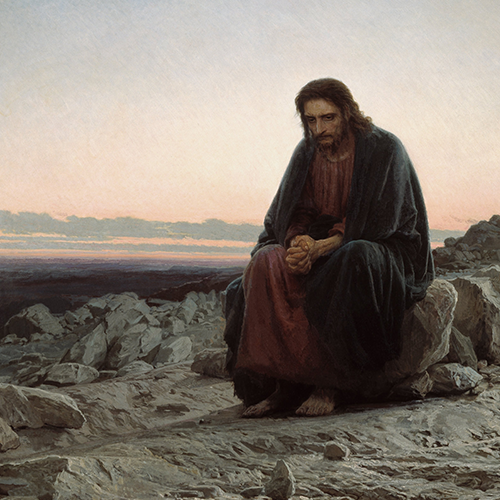
“There is not in the world a kind of life more sweet and delightful than that of a continual conversation with God. Those only can comprehend it who practice and experience it.”
Brother Lawrence, The Practice of the Presence of God, (Letter No. 5)
During this Season of Lent, I am inviting our people to “practice the presence of God,” to live each moment, with more and more intention, in the light of God’s presence.
To seek God, to practice the pursuit of “continual conversation” with Him is not easy. But it is better than all of the empty deceits of this world. We seek respite and solace in countless diversions (entertainment, social media) and trying to numb our pain (with [self-]medication or, even, we try to numb pain with pain).
“The single most important piece of advice about prayer is one word: Begin!”
Peter Kreeft, Prayer for Beginners, p. 25.
How are we even supposed to begin to “practice the presence of God?”
Ignatius’ Examen
If you are willing, I invite you to put down your phone throughout your day, and in its place, (but even if you don’t leave your phone behind) carry a pen and a physical prayer journal. In this pocket journal, I invite you to practice the ancient Christian discipline of the Examen.
Traditionally, the Examen is done at the end of the day. Here’s the basic outline…
- Presence – First, in silence (don’t rush this step), you turn your attention to God and ask Him to shine his light upon you – “Please God, let me know (and even feel) your presence now.” You may also meditate upon a verse of Holy Scripture.
- Consolation – You then give thanks for all of the many blessings of the day, the ways that God’s grace was evident in small and big moments.
- Desolation – Then, after giving thanks, review your day and bring to mind all of the things, internally and externally, that led you away from God, both your own sins and sins against you, troubles that you have brought upon yourself, and trials that have come upon you from outside yourself.
- Obedience – Then ask, where is God leading me? Where might I live in deeper obedience? Conviction of sin? Where do I need God to be present in my moments tomorrow?
- Prayer – Finally, pray compline (or short form at the end of day) and make intercessions for others.
Here’s the problem (at least for me)… If I wait until the end of my day, very often, my list of “desolations” is far greater than my “consolations.” All of the things that have troubled me throughout the day (desolations) – difficult circumstances, my sins that hound me all day long, my lack of devotion to God in so many places – all of these are in my mind, and I will forget about the little graces (consolations) of my day.
This is where the small pocket prayer journal comes.

Instead of carrying around my phone, hounded by endless distraction, what if I paid attention to the good gifts and graces ever before my face this Lenten season? What if I wrote down my trials and my sins in the moment so that I might not forget to bring them into the Light of God’s mercy and healing?
So what’s a “desolation” and a “consolation” again?
These old words are good for a couple of reasons, but at the very least, desolations and consolations contain many different ideas.
Desolations are simply described as everything that leads me to live in doubt, fear, and anger.
Desolations can be my own sins, but they can also be someone else’s sin against me (and even after that, my unhelpful or sinful response to someone else’s sin against me is exposed).
Accordingly, consolations are simply described as everything that leads me to live with faith, hope, and love.
Consolations can be kindnesses towards me from someone else, the felt presence of God’s grace inwardly, or even the experience of giving glory to God for the beauty of the sunrise. Vinita Hampton Wright has some very helpful notes (and a very helpful article) to help us discern living in desolation or living in consolation for our own examen prayer journal.
Desolation
- Turns us in on ourselves
- Drives us down the spiral ever deeper into our own negative feelings
- Cuts us off from community
- Makes us want to give up on the things that used to be important to us
- Takes over our whole consciousness and crowds out our distant vision
- Covers up all our landmarks [the signs of our journey with God so far]
- Drains us of energy
Consolation
Vinita Hampton Wright, ignatianspirituality.com
- Directs our focus outside and beyond ourselves
- Lifts our hearts so that we can see the joys and sorrows of other people
- Bonds us more closely to our human community
- Generates new inspiration and ideas
- Restores balance and refreshes our inner vision
- Shows us where God is active in our lives and where God is leading us
- Releases new energy in us
I will pray for you this Lent, and I invite you to please pray for me as well.
Yours ever,
Fr Chris+

